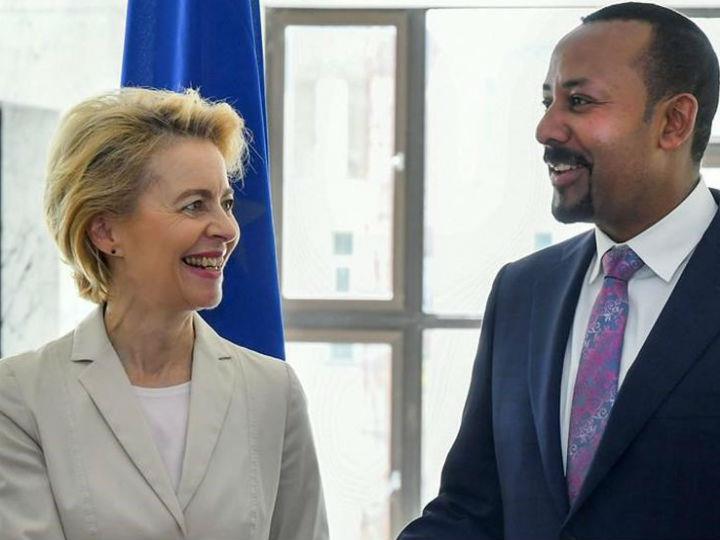by Jose Maria Vera*
When the 27 European Commissioners met their counterparts of the African Union for talks in Addis Ababa this Thursday, they had a great opportunity to work with African countries as partners at eye level. Unfortunately, there is a great chance they won’t.
While there has been much talk in Brussels and in European capitals to restart Europe-Africa relations and transform it into a real partnership, too little has happened, and recent policy decisions of the EU have even worsened the situation.
EU aid increasingly taken hostage by migration politics
Since 2015, the EU’s relationship with its African neighbours has been tainted by the political crisis that engulfed Europe. European governments have been pushing the EU to mainstream migration dialogues into its foreign policy and development work.
Over the past years, most – if not all – high-level meetings between European and African ministers were subject to the Europeans’ political necessity to show that the number of irregular migrants arriving in the EU is dropping and that the number of returns is increasing.
Take the ‘EU Trust Fund for Africa’ (EUTF for Africa), which was set up in 2015. What’s officially declared as development money is increasingly being spent to close borders, stifle migration and push for returns of migrants to Africa.
Recent Oxfam research shows that over €1 billion of development money is spent on curbing migration, while just €56 million is allocated to fund regular migration schemes. That is less than 1.5% of the total worth of the trust fund.
Some of this money has been spent to support refugees and communities in desperate need for assistance. Some has been spent on projects that made it more difficult for them to reach safety.
When the EU ignores realities in Africa
In the countries of the Sahel for instance, European pressure to prevent people from leaving their homes has taken no account of how repeated droughts and a destabilising security situation is affecting them. Aid has been spent on stopping people from relocating instead of supporting them to travel safely and integrate into new places.
In several countries, the integration of migration politics into the EU’s external action policies has been counterproductive. Most notoriously, the EU’s cooperation with, and funding of, the Libyan coastguard has actually helped to reinforce trafficking and the arbitrary detention of refugees in horrific and dangerous conditions.
The EU Trust Fund for Africa is just one example of how EU development policy, and its external policies in general, have been changing in recent years. Once one of the best and most principled donors of aid to eradicate poverty and extreme inequality, the EU has been turning inwards, prioritizing its own domestic political agenda over the development needs of people in other countries.
A geopolitical Commission should address the real challenges: poverty, inequality and the climate crisis
Development aid is meant to fight poverty and inequality. Billions of people worldwide still live in poverty and without access to basic services such as healthcare, sanitation and education.
As the effects of the current climate crisis on our way of live are becoming clearer, the urgency of supporting the people who will lose their jobs, their houses and their communities is becoming increasingly obvious.
These are the urgent needs and challenges that EU aid needs to address, and these should be the priorities of a truly ‘geopolitical Commission’.
Undermining the EU’s own standing in the world
When Europe ties its development policy to domestic affairs, it undermines its own ability to be a global player promoting change beyond its borders. Unsurprisingly, African governments have no vested interests in promoting European policies where they do not fit in with them.
With migration being one of the biggest drivers of development in some African countries, it is hard to see why they would subject themselves to European pressure on this issue.
Aid should never be used as a bargaining chip to gain cooperation. It is both bad for the people it is supposed to help, and it weakens the EU itself by reducing its political space, and its legitimacy, to push governments on important issues such as democracy, human rights and civic space.
Europe and Africa will benefit from a real partnership
It has been somewhat depressing to witness the impact of the changes in the EU’s external policies over recent years. Nevertheless, I have hope that Europe can reverse course and become a champion again in the fight against poverty and for sustainable development.
It is high time for the European Union and the African Union to work together to promote sustainable development in both continents. As a first step, a true partnership requires EU leaders in Brussels and national capitals to listen to the positions and priorities of their African counterparts.
Then, the EU will need to ensure it has the right political and financial instruments to ensure meaningful agreements can be followed up: development aid that is aligned with national priorities in receiving countries and that is locally owned; a foreign policy that is fit for the global environment and the challenges we will all face in the coming years.
Development cooperation is greatly needed, and Europe and Africa must work together to promote change that benefits people on both sides.
*interim executive director of Oxfam International
**first published in: www.euractiv.com




 By: N. Peter Kramer
By: N. Peter Kramer

